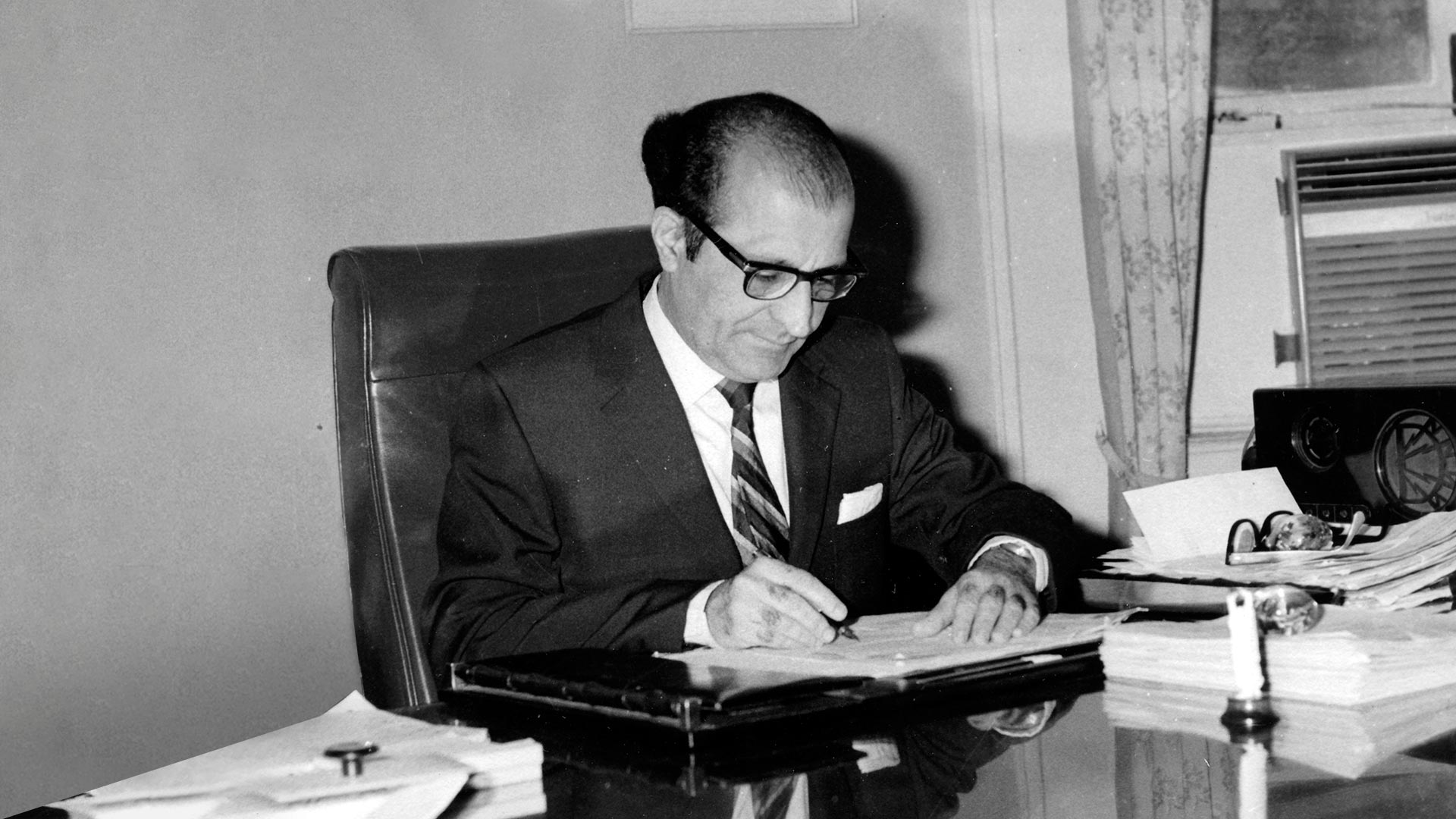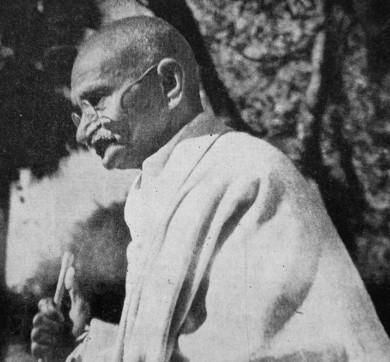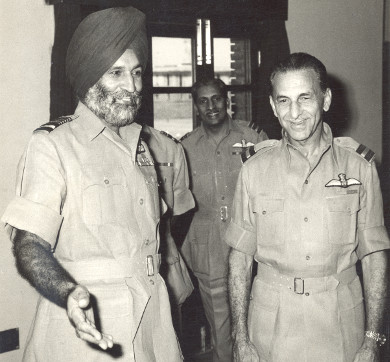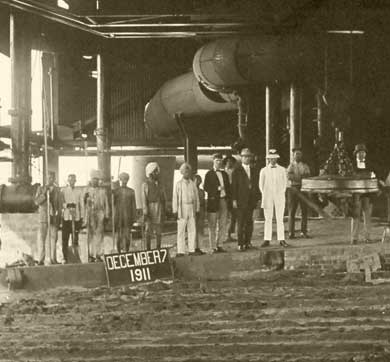September 2020 | 845 words | 2-minute read
Nanabhoy (Nani) Ardeshir Palkhivala was not just an eminent constitutional expert and a legal savant but also an economist, diplomat, orator, corporate leader and a crusader of civil rights — in essence the conscience keeper of the nation.
The story of this extraordinary man, who rose beyond his humble background to become one of the most notable personalities of his time, remains an inspiration to many.
Born on January 16, 1920, Nani completed his LLB in 1944 from the Government Law College, Mumbai, and joined the chambers of Sir Jamshedji Behramji Kanga. Soon, he gained the reputation of an articulate barrister who presented his case with logical acuteness and incomparable lucidity.
At the age of 30, he co-authored an authoritative tome on Indian tax law, The Law and Practice of Income Tax; he authored several best-selling books in his lifetime.
In 1963, Nani declined the offer to be on the Supreme Court bench and in 1968, he refused the office of the Attorney General of India, believing that he would be able to make any contribution to public life by remaining outside the government.
He eventually took up a government assignment in 1977 as India’s ambassador to the US, and also did a stint as the High Commissioner for India in the Bahamas.
Legal luminary
Through the course of his active legal career, Nani’s interpretations of the law influenced a number of judgements. His most enduring contribution was in the Keshavananda Bharati case, where he expounded that Parliament had no authority to amend 'the basic structure of the constitution'. It was his indefatigable efforts that prevented the Parliament from altering the basic structure of the Constitution.
He argued in favour of the Fundamental Rights of minorities, granting them the right to administer educational and religious institutions of their choice and to choose the medium of instruction.
Among the other prominent cases that Nani fought were the Bank Nationalisation, Privy Purses, Minerva Mills and the Mandal case.
His generosity of spirit prompted him to take up cudgels beyond legalities. When he heard reports about the cash reward for the Nobel Peace Prize — received by Mother Teresa — was likely to be taxed by the Law Ministry, he debated with the bureaucrats on the issue of the law. His clear logic and arguments made the bureaucrats retract.
Corporate leader
It was JRD Tata who initiated Nani into the corporate world. In 1960, he joined the Board of Directors of Tata Sons. In the late 1970s, he became the deputy chairman of Tata Steel and Tata Engineering and Locomotive Company (TELCO), now Tata Motors. He also served as the Chairman of Tata Consultancy Services for several years. JRD allowed him the freedom to continue his legal practice, which he did selectively for cases of national importance and, occasionally, for private consultations.
Union budget analysis
Struggling with a stammer as a child, Nani overcame it by sheer will power to become an orator par excellence. He delivered his speeches on the Union Budget and the country’s financial health to audiences at Mumbai’s Brabourne Stadium, where close to 100,000 people listened in rapt attention, as he dissected the budget.
He held his first talk on the budget analysis in the hall of an old hotel in south Mumbai. As these talks became popular, attracting industrialists and commoners alike, the venue was shifted to the Cowasji Jehangir Hall in 1965, to the Cricket Club of India East Lawns in 1966 and to the Brabourne cricket stadium from 1983.
There was a reason why these talks were so popular. Blessed with an eidetic memory, Nani would rattle off dates, facts and figures and other references from history and quotations from literature, without holding a scrap of paper in his hand. He could speak with conviction on any topic. No matter how abstruse the subject, he spoke with refreshing candour.
His competence extended to the written word. His book, The Highest Taxed Nation, sold 5000 copies within two days and another 5000 copies within the next three weeks, forcing the Finance Ministry to take steps towards simplifying the tax structure and reducing tax rates.
Generous giver
Nani was a champion of free enterprise, but he also believed that private wealth should be used for public good. He donated generously to individuals and institutions. He gave away a sum of 5,37,000 — the entire profit from the seventh edition of his book, Law and Practice of Income Tax — to the Jayaprakash Institute of Human Freedoms. A few years before his death, he donated Rs. 20 million to Shankar Netralaya, a prominent eye hospital in Chennai.
Recipient of the Padma Vibhushan in 1998, India’s second highest civilian honour, Nani was known for not charging high fees and doing a lot of pro bono work.
The legal luminary, who performed the true role of an advocate by helping the courts to arrive at the right decision, passed away on December 11, 2002. Nani will forever be remembered as the court room genius who had the gift of unravelling the intricacies of jurisprudence, a man of impeccable honesty, integrity and warmth.
—Cynthia Rodrigues













